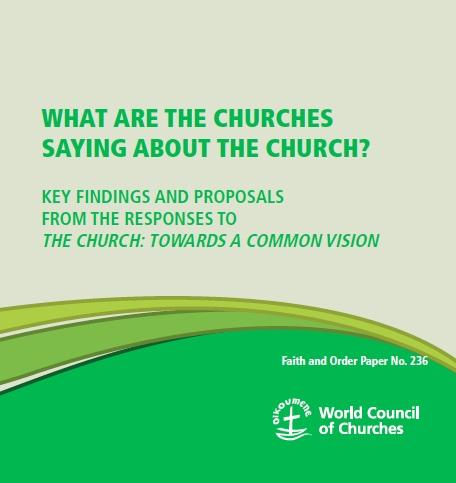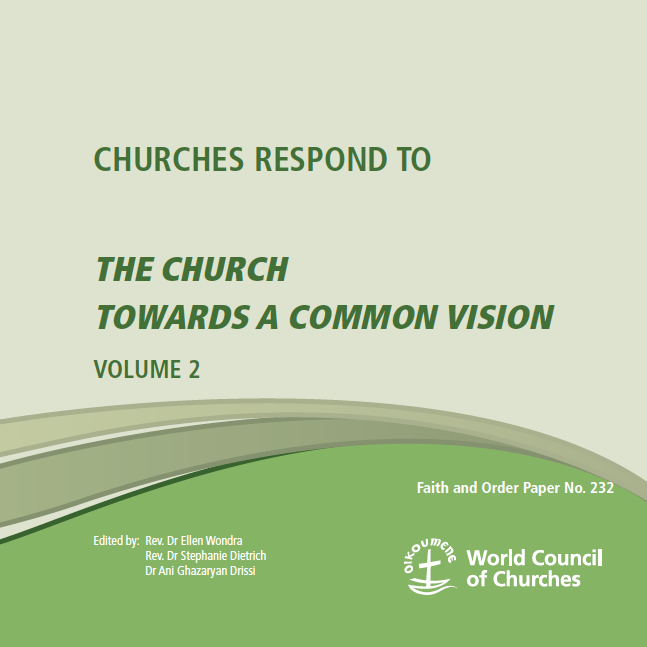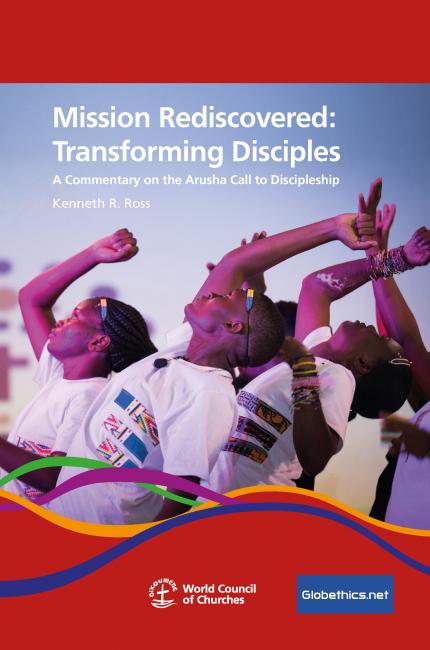Displaying 161 - 180 of 203
Ecumenical International Youth Day 2021 Event Toolkit
Young People and Climate Justice
06 August 2021
What Are the Churches Saying About the Church?
Key Findings and Proposals from the Responses to The Church: Towards a Common Vision
21 June 2021
Churches Respond To The Church: Towards A Common Vision Volume I
Faith and Order Paper No. 231
23 February 2021
Churches Respond To the Church: Towards a Common Vision Volume II
Faith and Order Paper No. 232
23 February 2021
WCC to host online prayer for Week of Prayer for Christian Unity
21 January 2021
Love and Witness
Proclaiming the Peace of the Lord Jesus Christ in a Religiously Plural World
18 January 2021
No room at the inn
26 December 2020
Mission Rediscovered: Transforming Disciples
A Commentary on the Arusha Call to Discipleship
02 December 2020

















